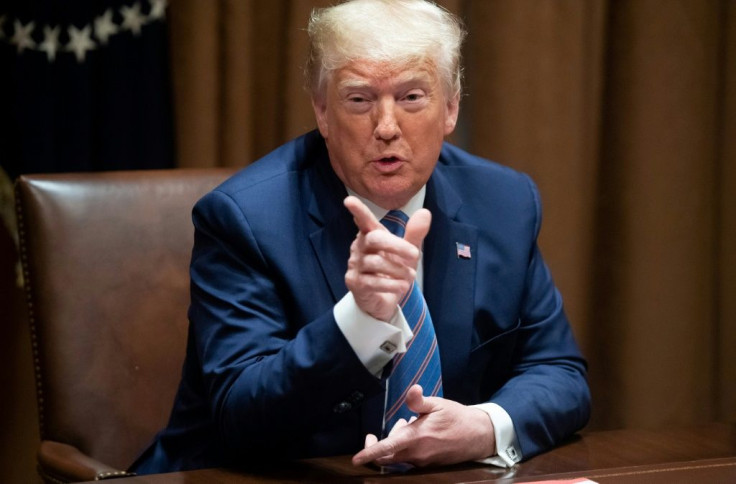Trump To Halve US Troops In Key NATO Ally Germany
President Donald Trump said Monday he will halve the number of US troops in Germany because Berlin is "delinquent" in contributions to NATO and treats the United States "badly" on trade.
Trump told reporters there are 52,000 US soldiers stationed in Germany and he will bring this to 25,000.
"It's a tremendous cost to the United States," he said. "So we're removing a number down to, we're putting the number down to 25,000 soldiers."
Trump's numbers were misleading because there are only between 34,000 and 35,000 US soldiers permanently stationed in Germany, according to the Pentagon. Rotation of units means the overall number can only temporarily top 50,000.
However, the US president's message to Germany, Europe and the US-led NATO alliance was loud and clear.
US troops have been stationed in the geopolitically vital country since the end of World War II, forming the bulk of NATO's conventional defense against the Soviet Union during the Cold War.
The resurgence of Russia's military ambitions under President Vladimir Putin has given the US presence new importance in the last two decades, with central and eastern European states leading the way in pressuring for stronger US defenses.
Trump said he wanted to punish what he said were Germany's insufficient payments to NATO and to use the troops' future as a weapon to back up his threats of a trade war with the European Union.
"Germany's delinquent, they've been delinquent for years and they owe NATO billions of dollars, and they have to pay it. So we're protecting Germany and they're delinquent. That doesn't make sense," he said.

Trump has repeatedly accused European NATO members of freeloading by falling short of their commitment to spend at least two percent of GDP on defense and overly relying on the alliance's historic leader -- the United States.
Senior German politicians expressed concern last week about reports the US was planning to cap troop numbers at around 25,000, which appeared to catch Berlin by surprise.
The plan raised fresh questions about Trump's commitment to longstanding cooperation agreements with European allies and the Western military alliance itself.
Trump said Germany, as the economic powerhouse of the European Union, was also to blame because "they treat us very badly on trade."
"We're negotiating with them on that, but right now I'm not satisfied with the deal they want to make. They've cost the United States hundreds of billions of dollars over the years on trade, so we get hurt on trade and we get hurt on NATO."
He complained that Germany was profiting from the US troop presence.
"Those are well-paid soldiers. They live in Germany, they spend vast amounts of money in Germany. Everywhere around those bases is very prosperous for Germany. So Germany takes."
Trump has had testy relations with German Chancellor Angela Merkel in the past. A new strain emerged over the last few weeks when she said no to an invitation for a G7 summit in Washington, citing the lingering coronavirus pandemic, which has sharply restricted international travel.
Trump, who is behind in the polls ahead of November presidential elections, had hoped the summit would showcase US leadership. Momentum for the hastily organized G7 petered out after Merkel's refusal and Trump reacted by announcing he'd hold a summit later this year, possibly September.
In a surprise move, the Republican president said he would invite Putin to join in, along with several other non-G7 world leaders, calling the group of seven wealthy, Western allies "outdated."
© Copyright AFP 2024. All rights reserved.





















